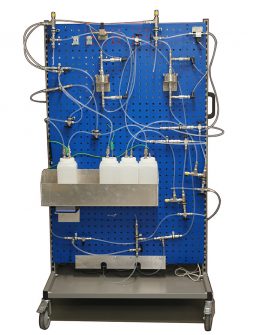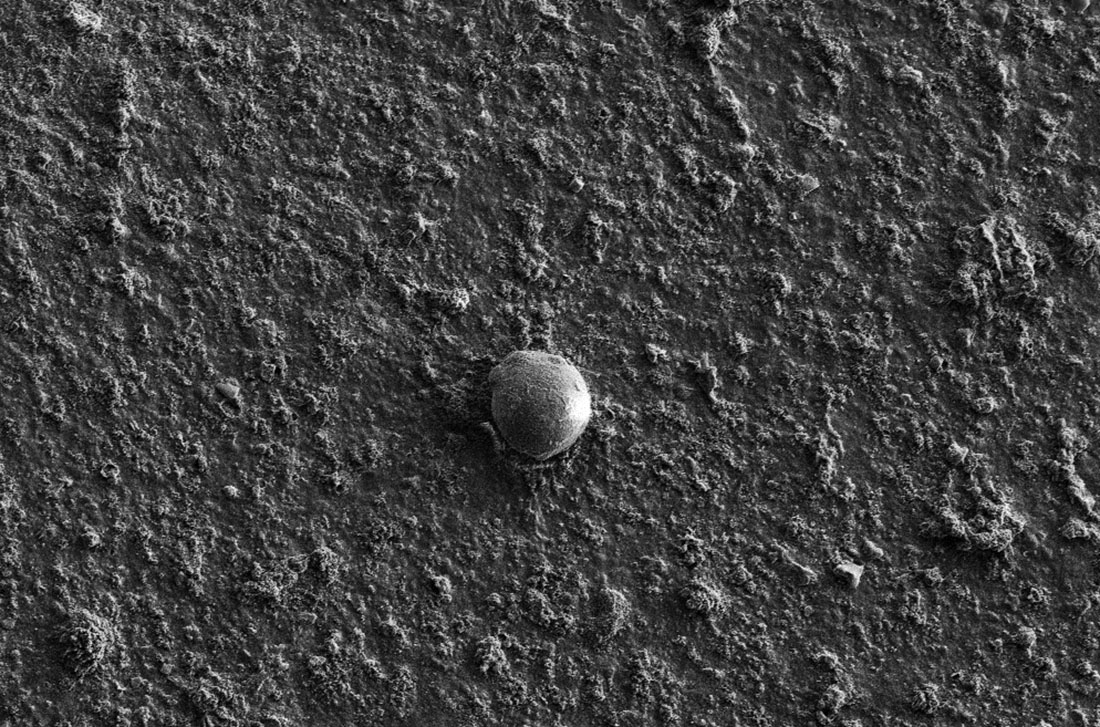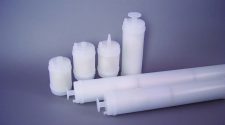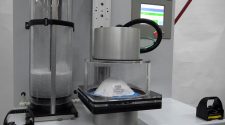Botond Csontos is conducting research at KTH, Royal Institute of Technologies, in the Department of Machine Design. His group focuses on the research and development of the internal combustion engine, with specific attention to renewable fuels. In his current project, Csontos is in close collaboration with one industrial stakeholder, Scania. Scania is a manufacturer of commercial vehicles, specifically heavy trucks and buses.

3rd Year Ph.D. Student
KTH Royal Institute of Technology
Stockholm, Sweden
School of Industrial Engineering and Management
Department of Machine Design
Research Group: Internal Combustion Engines
Advisor: Hanna Bernemyr and Anders Christiansen Erlandsson
Csontos is studying the effects of biodiesel on fuel filtration, with a focus on soft particles. His interest in this topic was born during his master’s degree studies in Chemical Engineering, during which he wrote a thesis on Scania. The topic of his thesis project was to count the soft particles in vehicle fuel, which served as the foundation for his current Ph.D. research. “This gave me a good insight to the research field and the problem that the project is trying to solve,” said Csontos. “I believe that my project contributes to the efforts to reach sustainability in transportation. Further my project deals with a problem currently relevant to a big industrial manufacturer, thus making it easily applicable.”
Research overview
Csontos’ research is dedicated to learning more about the filtration of soft particles. Soft particles is a term created at Scania, and it is connected to contaminant originating from the use of biodiesel. Soft particle deposits are mainly organic in nature and cause premature filtration fouling in the fuel system. Further, if the particles reach the injector, they can create power loss and an increase in emissions due to the deteriorated operation conditions.
During his studies, Csontos and the research team he is part of have identified conditions enhancing the formation of soft particles during the degradation of biofuels. They have analyzed contamination collected from filters used in field trials. The findings have provided knowledge about the chemical nature of the soft particles, showing that soft particles consist of degradation products, such as metal carboxylates or polymerized compounds. Further, the presence of glycerol and sterols was identified, both of which are commonly found impurities in biodiesel.
The team also facilitated the design and construction of a custom-built fuel filter rig. The fuel rig is downsized compared to a typical truck fuel filter system, making it suitable for laboratory-scaled studies to simulate the effect of soft particles on filtration.
Soft particle deposits are mainly organic in nature and cause premature filtration fouling in the fuel system. Further, if the particles reach the injector, they can create power loss and an increase in emissions due to the deteriorated operation conditions.
Currently, studies are being conducted on the test rig, where the first goals are to compare different filter materials available for fuel filtration and estimate their efficiency in the separation of soft particles. In the next step of the project, the team will study the effect of soft particles on fuel filter lifespan.

Photo: Botond Csontos
Career goals
Csontos’ near term goal is to finish his Ph.D. program. In order to do so, he will publish six peer-reviewed technical papers. So far, he has written four technical papers, which were, or are going to be, presented at Society of Automobile Engineers (SAE) conferences. From these papers, one has been chosen to be published in an SAE journal. Csontos also presented a poster in October 2019 at the FILTECH conference in Cologne, Germany.
Csontos’ long-term goal is to work in research and development in an industrial environment where his work will receive real-world application. He would like to see his research have influence in the use of everyday equipment. At the same time, he is also interested in academic research.











